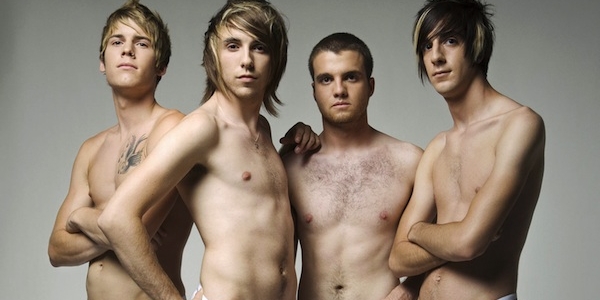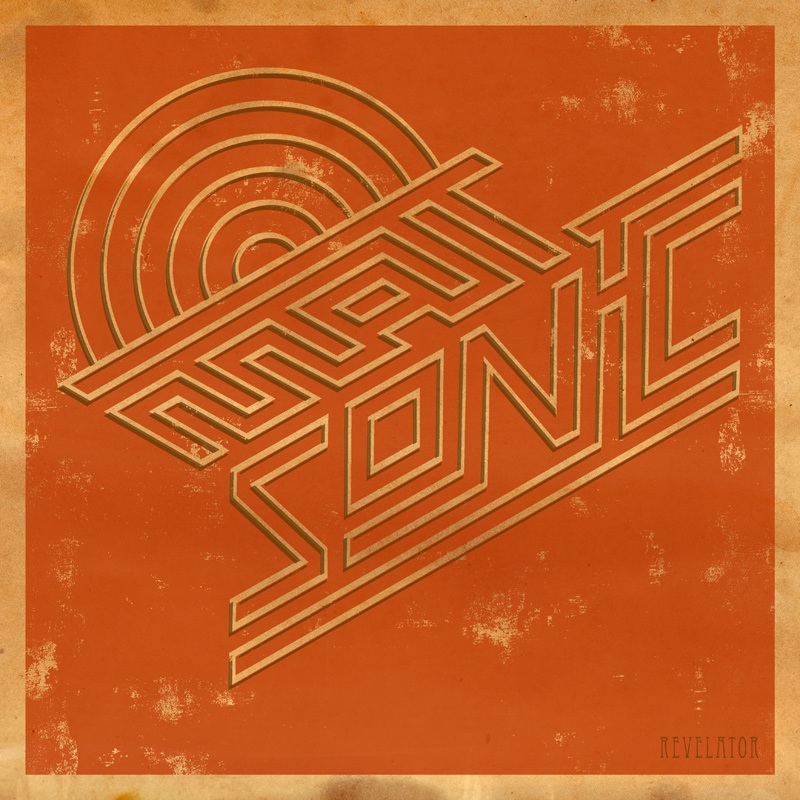“To be completely honest, I think that’s what keeps this band going. It’s the primary way of keeping this band going and spreading the word. It’s what we do, and we do it as best as we can.”
Ultimately for Gaskarth and All Time Low, who’ve been together since 2003 yet first emerged in 2005 with their debut full-length The Party Scene, touring has become a necessity for their survival.
“We haven’t had a ton of support from mainstream radio,” he says, “So the best way we can go about things with this band is by travelling to these places and playing these concerts and making sure people leave having had a good time.”
The band’s jet-setting pace has become a way of life for the four members. Not many bands are able to count three Australian tours in their first ten years of existence. The members of All Time Low, who’ve played Soundwave twice, now consider the festival to be one of the better ones they’ve played.
“I give Australia a lot of props for that festival,” he notes, undoubtedly smiling on the other end of the line. “It’s one of the best run and most comfortable festivals to be a part of. They do a great job at taking care of all the bands, especially those who aren’t from Australia and who’ve travelled a long way to be there. It can be a bit rattling when everyone travels together, all the bands. But there ends up being a great sense of camaraderie between all the bands, despite the long distances we have to travel. I’ve always had a really good time.”
Every time All Time Low visit a new country, it seems, according to Gaskarth at least, that they play different and very often larger venues. Consider their most recent performance in London, during which the band opened for Green Day, playing the massive 60,000-capacity Emirates Stadium. As Gaskarth tells it, intimidation regarding playing new venues occurs, but it quickly gives way to a more comfortable emotion.
“It’s less intimidation and more excitement. We’ve never had an experience where we’ve been booed offstage, or where we’ve been too worried to go tour a new place. We really just get excited when we have the opportunity to go to a new place; for us that means making new fans.”
“From our experience, when we encounter a new place we just have to continue to nurture it and keep coming back to have any kind of presence there,” he continues, employing a surprisingly DIY-approach to their aesthetic.
Now ten years into their career, All Time Low has also experienced the benefit of being able to pick and choose which venues they’d like to perform at. With five albums under their belt, including their latest, 2012’s incredibly upbeat Don’t Panic, All Time Low has reached an enviable position: ensuring their fans receive the most intimate show possible, while still experimenting with different stages while they can.
“There’s two that I prefer,” says Gaskarth when asked if there was now a certain type of venue he prefers. “Anywhere that’s got a capacity of 1,000-5,000 because you don’t have that feeling of separation from the crowd. You can still really see all the faces and a big part of our band is crowd interaction. When we play massive festivals, and recently, when we’ve been opening for Green Day, we have to alter the dynamic of our show a bit to cater to these larger audiences. Sometimes I think that takes away from what we do best, which is carry on with the crowd on a personal level, be it with banter between us and a the crowd, whatever.”
“At the same time though, playing in front of 60,000 people is a very incredible experience,” he continues, sounding genuinely amazed. “The more it happens, the more we grow into it. If we continue to play shows that size, we’ll eventually find our comfort zone I’m sure.”
If anything, finding a comfort zone within a lifestyle that requires constant change has remained the easiest part of the job for All Time Low. Video interviews with band members allude to a closeness and camaraderie between band members that can often become strained when spending long periods of time together travelling.
Yet as Gaskarth tells it, the band wouldn’t be able to see the world if it weren’t for that very closeness.
“We grew up together; we met in high school. Now, more than ever, we’re having more fun on the road because it feels like family. It’s very easy to tolerate people when they’re as close to you as they are. It’s important to have that dynamic.”
BY JOSHUA KLOKE







